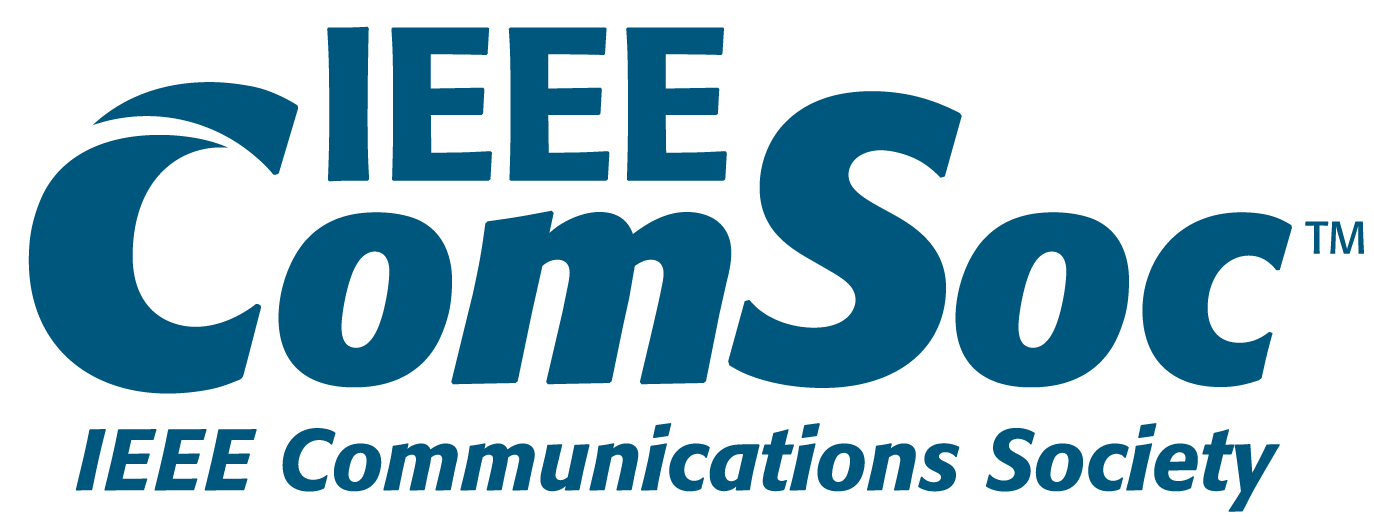NoF 2022 Tutorials
Tutorial #1
Title: Recent Advances in Data Engineering for Networking
Overview
To address the complex issues that larger and highly integrated networks face in the design, analysis, deployment and management phases, recent advances in data science and engineering technologies in both academia and industry have spurred the adoption of various Artificial Intelligence (AI)/Machine Learning (ML) platforms and frameworks in telecommunication network infrastructures. In this tutorial, we aim to provide a comprehensive and thorough overview of the recent advances in data engineering frameworks and link the capabilities of the data engineering ecosystem with a possible connection to future telecommunication systems in the context of network management and orchestration.
Some special features of this tutorial are:
- A clear link between the data engineering ecosystem (including data connection, data ingestion, data processing & analysis, data storage, data monitoring & visualization and data management & orchestration frameworks),
- Recent developments in networking, an overview of standardization efforts in network management and orchestration and how these can be related to data engineering frameworks,
- The relationship to data science frameworks, ML platforms used in the industry, and related data engineering use cases for telecommunications networks will be discussed.
- Two examples on log management in NFV service orchestration and AI/ML-driven scaling of digital service will also be demonstrated.
- Finally, gap analysis, challenges, and future directions will be discussed.
The target audience is networking practitioners who are willing to get involved in the data engineering ecosystem. The attendees to this tutorial will have the chance to learn more about data engineering for networking and its applications from the perspective of telecommunication operators. The audience is expected to have basic knowledge of networking as a prerequisite.
Speakers
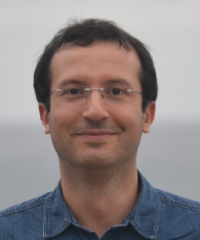
Engin Zeydan
(CTTC, Spain)
Bio: Engin Zeydan received the PhD degree in February 2011 from the Department of Electrical and Computer Engineering at Stevens Institute of Technology, Hoboken, NJ, USA. Previously, he received his M.S. and B.S. degrees from the Department of Electrical and Electronics Engineering at Middle East Technical University, Ankara, Turkey, in 2006 and 2004, respectively.
Dr. Zeydan has worked as an R&D engineer for Avea, a mobile operator in Turkey, between August 2011 and April 2016 in Istanbul, Turkey. He was with Turk Telekomunikasyon A.S between April 2016 to November 2018 working as a Senior R&D Engineer in Istanbul, Turkey. He was also a part-time instructor at Electrical and Electronics Engineering department of Ozyegin University Istanbul, Turkey between January 2015 and June 2018.
Since November 2018, he has been with the Communication Networks Division of the Centre Tecnològic de Telecomunicacions de Catalunya (CTTC) working as a Senior Researcher. His research areas include applications of data engineering/science for telecommunication networks and flexible mobile networks. He has been involved in many European and national level projects in collaborations with various industries and universities across Europe and Turkey. Some of these are H2020 projects MonB5G (as project coordinator), 5Growth and Clear5G, FP7 projects MOTO and CROWD, Eureka Celtic-Plus projects MEVICO, SIGMONA, PULPA and SHARING and ITEA project PAPUD.
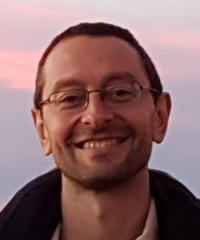
Josep Mangues-Bafalluy
(CTTC, Spain)
Bio: Josep Mangues-Bafalluy received the PhD degree in Telecommunications in 2003 from the Technical University of Catalonia (UPC). He is Senior Researcher and Head of the Communication Networks (COMNET) Division of the Centre Tecnològic de Telecomunicacions de Catalunya (CTTC), which is currently composed of 28 people working on optical networks and systems and mobile networks. Prior to that, he coordinated the activities of the IP Technologies Area of the CTTC since June 2003.
He has published over 120+ journals/magazines and international conference papers (e.g., IEEE Communications Magazine, IEEE Transactions on Mobile Computing, Ad hoc Networks, IEEE Access, IEEE Netsoft, IEEE Infocom, IEEE ICC) through collaborations with multiple international research groups. He has given keynotes in conferences/workshops (MONAMI 2015, Mobislice 2020).
In addition to academia, he has also given talks in various industrial events (e.g., LTE World Summit, Small Cells World Summit). Furthermore, he frequently carries out communication actions for society at large (e.g., talks in open science weeks, book co-authorship). He has also co-authored two patents and various ETSI contributions and IETF drafts.
Tutorial #2
Title: Building Network Digital Twins for Next-Generation WLANs using Graph Neural Networks
Overview
Network operators face a significant problem when it comes to dynamically accommodating and reacting to customer expectations due to, among other reasons, the exponential growth in network scale and an extreme set of requirements in network services, such as ultra-low latency, highly reliable communication, and improved user experience. In fact, as managed networks become more complex, network operation and maintenance become more difficult and costly to carry out.
By building Network Digital Twins (NDTs), network operators can create network optimization strategies, carry out what-if analyses, troubleshoot problems, and plan network upgrades. The operations can be executed in real-time without endangering the physical network because interacting with the NDT does not require access to the real network, only its data.
In this tutorial we envision Next-Generation Wireless Local Area Networks (WLANs), where a highly degree of automation is enabled by techniques such as SDN, NFV and ML. In such context, we will build an NDT using the latest advances in ML to predict WLANs performance when different configurations of channel bonding are enforced.
The tutorial will address the following topics:
- Part I – Introduction to wireless networking management
- Background in Wi-Fi and its medium access mechanisms.
- Background in Channel Bonding
- Challenges in Channel Bonding
- Necessity for digital twins.
- Part II – Hands-on: Building an NDT for Next-Generation WLANs with traditional AI/ML/DL
- Introduction to dataset
- Introduction to AI/ML/DL techniques
- Hands on: Building an NDT with traditional AI/ML/DL
- Break
- Part III – Hands-on: Building an NDT for Next-Generation WLANs using Graph Neural Networks
- Motivation for using Graph Neural Networks (GNNs) in topology-based problems
- Introduction to GNNs
- Hands-on: Building an NDT for Next-Generation WLANs using GNNs.
- Part IV – State of the art and beyond
- Recent advances in building NDTs
This tutorial is mainly intended for researchers interested in the intersection between novel AI/ML techniques and wireless network management, optimization, and planning. A brief introduction to Machine Learning and Wireless Networks will be given in this tutorial, but some background in the topic would be advantageous.
Speakers
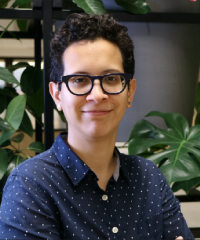
Paola Soto
(University of Antwerp – imec, Belgium)
Bio: Paola Soto is a Ph.D. researcher at the University of Antwerp-imec. She received her B.Sc. in Electronics and her M.Sc. in Telecommunications Engineering from the University of Antioquia, Colombia, in 2014 and 2018, respectively. Her current research is focused on developing network management strategies using artificial intelligence and machine learning.
Paola led the ATARI team, a UAntwerpen (Belgium) and UdeA (Colombia) initiative, during the 2020 edition of the ITU AI/ML in 5G Challenge, where they won the second place within their problem statement (Improving the capacity of IEEE 802.11 WLANs through Machine Learning) and were recognized as one of the most innovative teams in the whole competition. Paola has been involved in national and international projects funded by Belgian and European funding bodies and collaborated with researchers across Europe and Latin America.
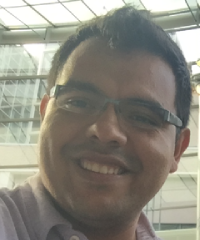
Miguel Camelo
(University of Antwerp – imec, Belgium)
Bio: Miguel Camelo received a master’s degree in systems and computer engineering (University of Los Andes, Colombia, 2010) and a Ph.D. degree in computer engineering (University of Girona, Spain, 2014). He has (co)authored several papers in international conferences/journals and has been involved in several Spanish, Belgian, and European research projects.
He was part of the SCATTER team, a multi-disciplinary research team that participated in the DARPA SC2 competition. He has also participated in the 2020 and 2021 editions of the ITU AI/ML in 5G Challenge with recognized performance. He is a Senior Researcher at the University of Antwerp-imec, Belgium, where he leads the research track on applied artificial intelligence in networking.

